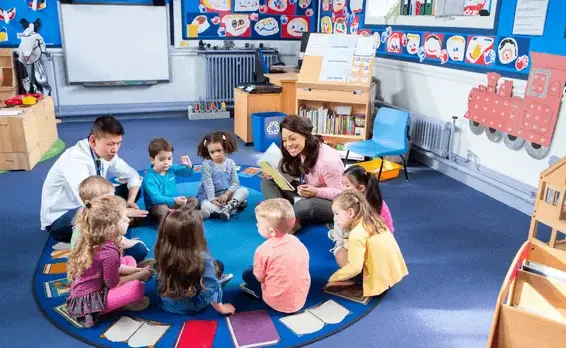Social interaction plays a fundamental role in the development of young children, profoundly influencing their cognitive, emotional, and social growth. In settings such as child care Hurstville, where young learners come together from diverse backgrounds, the opportunities for social learning are particularly significant. These interactions not only help children learn how to communicate and collaborate but also shape their understanding of themselves and the world around them.
The Impact of Social Interaction on Cognitive Development
Language Skills
From an early age, children develop language skills through social interaction. Conversations with peers and adults in a childcare setting enhance vocabulary acquisition and grammatical knowledge. This verbal exchange is crucial for developing communication skills that are foundational for future academic success and personal relationships.
Problem-Solving Abilities
Social environments challenge young learners to think critically and solve problems together. During group activities, children learn to negotiate, propose solutions, and make decisions collectively. These experiences teach them that problems can have multiple solutions, a concept that encourages flexible thinking and creativity.
Cognitive Flexibility
Interacting with a variety of peers and adults allows children to experience different perspectives and approaches to learning. This exposure is vital for developing cognitive flexibility, helping children adapt to new situations and understand different points of view.
Emotional and Social Development Through Interaction
Empathy and Emotional Intelligence
Social interaction is critical for developing empathy and emotional intelligence. As children interact with others, they learn to read emotional cues and respond appropriately. This sensitivity is essential for building strong, healthy relationships throughout their lives.
Self-Esteem and Confidence
Regular interaction with peers and supportive adults boosts children’s self-esteem and confidence. Positive feedback and encouragement from others during social activities help children feel valued and capable, which encourages them to take on new challenges with optimism.
Social Norms and Behaviors
Children learn about social norms, values, and appropriate behaviors through their interactions. Childcare environments, where structured and unstructured interactions occur regularly, provide a controlled setting in which children can explore social roles and boundaries under the guidance of experienced educators.
Enhancing Social Skills in Childcare Settings
Structured Group Activities
Deliberately planned group activities can effectively promote social skills. These activities might include team sports, group art projects, or collaborative storytelling sessions. Such settings encourage children to work together, share ideas, and appreciate the value of teamwork and cooperation.
Role-Playing and Simulation Games
Role-playing games are a fun and engaging way for children to practice social interaction. These games allow children to experiment with different social roles safely, understand various perspectives, and develop negotiation and conflict-resolution skills.
Encouraging Inclusion
Promoting an inclusive environment ensures that all children, regardless of their background or abilities, have the opportunity to engage and interact with their peers. Activities that foster inclusion teach children about diversity and acceptance, key components of social intelligence.
Long-Term Benefits of Social Learning
The skills developed through early social interactions form the basis for personal and professional success in later life. Individuals who have learned to navigate social environments effectively are better equipped to handle interpersonal difficulties and collaborate well with others. Moreover, these early interactions foster resilience, allowing children to adapt more readily to change and adversity.
In conclusion, the role of social interaction in the development of young learners cannot be overstated. Childcare settings like those in Hurstville offer a rich environment for children to engage with their peers and develop essential life skills. By prioritizing social learning, we can provide our children with the tools they need to succeed in every aspect of their lives, enriching their education and personal growth through the power of social interaction.
